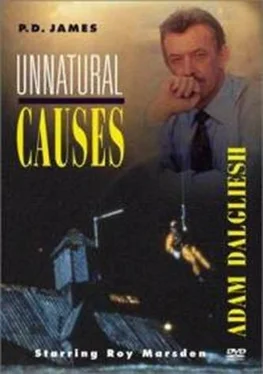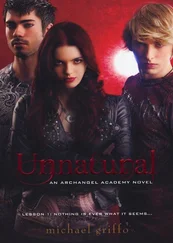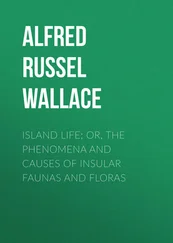P James - Unnatural Causes
Здесь есть возможность читать онлайн «P James - Unnatural Causes» весь текст электронной книги совершенно бесплатно (целиком полную версию без сокращений). В некоторых случаях можно слушать аудио, скачать через торрент в формате fb2 и присутствует краткое содержание. Жанр: Детектив, на английском языке. Описание произведения, (предисловие) а так же отзывы посетителей доступны на портале библиотеки ЛибКат.
- Название:Unnatural Causes
- Автор:
- Жанр:
- Год:неизвестен
- ISBN:нет данных
- Рейтинг книги:4 / 5. Голосов: 1
-
Избранное:Добавить в избранное
- Отзывы:
-
Ваша оценка:
- 80
- 1
- 2
- 3
- 4
- 5
Unnatural Causes: краткое содержание, описание и аннотация
Предлагаем к чтению аннотацию, описание, краткое содержание или предисловие (зависит от того, что написал сам автор книги «Unnatural Causes»). Если вы не нашли необходимую информацию о книге — напишите в комментариях, мы постараемся отыскать её.
Unnatural Causes — читать онлайн бесплатно полную книгу (весь текст) целиком
Ниже представлен текст книги, разбитый по страницам. Система сохранения места последней прочитанной страницы, позволяет с удобством читать онлайн бесплатно книгу «Unnatural Causes», без необходимости каждый раз заново искать на чём Вы остановились. Поставьте закладку, и сможете в любой момент перейти на страницу, на которой закончили чтение.
Интервал:
Закладка:
Half an hour later he settled himself to sleep again. But before he dropped into the first layer of unconsciousness, something happened. He had been thinking drowsily and without effort of Seton’s murder. It had been no more than the mind’s slow recapitulation of the past day. And suddenly, inexplicably, he knew how it could have been done.
BOOK THREE. SUFFOLK
1
It was just after nine o’clock when Dalgliesh got back to Pentlands. The cottage was empty, and for a moment he felt again the foreboding of the night. Then he saw the note on the kitchen table. His aunt had breakfasted early and was walking along the shore towards Sizewell. There was a jug of coffee ready to be reheated and the breakfast table was laid for one. Dalgliesh smiled. This was typical of his aunt. It was her habit to take a morning walk along the beach and it would never occur to her to vary the routine merely because her nephew was flying backwards and forwards between London and Monksmere in chase of a murderer and might wish her to be immediately available to hear his news. Nor would she imagine that a healthy male was incapable of getting his own breakfast. But, as always at Pentlands, the essential comforts were there, the kitchen was warm and welcoming, the coffee strong, and there was a blue bowl of new-laid eggs and a batch of home-baked rolls still warm from the oven. His aunt had obviously been up early. Dalgliesh breakfasted quickly, then decided to stretch his car-cramped legs by walking along the shore to meet her.
He jumped his way down the uneven path of sand and rock which led from Pentlands to the beach. The leaping sea was white capped to the horizon, a brown-grey waste of heaving water, empty of sails and with only the sturdy silhouette of a coaster against the skyline. The tide was coming in fast. Lurching over the stones of the upper beach, he found the ridge of fine shingle which ran halfway between the sea’s edge and the plateau of marram grass which fringed the marshes. Here walking was easier although, from time to time, he was forced to turn his back to the wind and fight for breath. Buffeted and foam-flecked, he squelched onward over the shingle, finding the occasional and welcome stretch of firm, serrated sand and pausing from time to time to watch the smooth green underbelly of the waves as they rose in their last curve before crashing at his feet in a tumult of flying shingle and stinging spray. It was a lonely shore, empty and desolate, like the last fringes of the world. It evoked no memories, cosily nostalgic, of the enchantments of childhood holidays by the sea. Here were no rock pools to explore, no exotic shells, no breakwaters festooned with seaweed, no long stretches of yellow sand sliced by innumerable spades. Here was nothing but sea, sky and marshland, an empty beach with little to mark the miles of outspate shingle but the occasional tangle of tar-splotched driftwood and the rusting spikes of old fortifications. Dalgliesh loved this emptiness, this fusion of sea and sky. But today the place held no peace for him. He saw it suddenly with new eyes, a shore alien, eerie, utterly desolate. The unease of the night before took hold of him and he was glad to see, rising from the sand dunes, the familiar figure of his aunt braced like a flagstaff against the wind, the edges of her red scarf flying.
She saw him almost immediately and came towards him. As they met and stood together, fighting for breath against a sudden gust of wind, there was a harsh “kraaank” and two heron flew low overhead, pounding the air with heavy, laborious wings. Dalgliesh watched their flight. Their long necks were drawn in, their delicate brown legs stretched straight behind them like a slipstream.
“Heron,” he said with mock triumph.
Jane Dalgliesh laughed and handed him her field glasses. “But what do you make of these?”
A small flock of grey-brown waders was twittering on the edge of the shingle. Before Dalgliesh had time to note more than their white rumps and blackish, down-turned beaks, the birds rose in one swift direct flight and faded into the wind like a wisp of thin white smoke.
“Dunlin?” he hazarded.
“I thought you might say dunlin. They’re very similar. No, those were curlew sandpipers.”
“But the last time you showed me a curlew sandpiper it had pink plumage,” protested Dalgliesh.
“That was last summer. In the autumn they take on the buffish plumage of the young birds. That’s why they look so like the dunlin… Did you have a successful time in London?”
Dalgliesh said: “Most of the day I spent following rather ineffectually in Reckless’s footsteps. But during the course of a too-large lunch with Max Gurney at the Cadaver Club I learned something new. Seton was proposing to use virtually all his capital to endow a literary prize. Having given up hope of personal fame he was proposing to buy a vicarious immortality. He wasn’t skimping the price, either. Incidentally I have an idea now how Seton was killed but as it’s going to be virtually impossible to prove, I don’t think Reckless will thank me for it. I suppose I’d better phone him as soon as we get back.”
He spoke without enthusiasm. Jane Dalgliesh cast a glance at him but asked no questions, and quickly turned her face away in case he should see and be irritated by her obvious concern.
“Did Digby know that he was likely to be done out of his inheritance?” she asked.
“Apparently no one knew except Max. The odd thing is that Seton wrote to him about it and typed the letter himself by the look of it. Yet Reckless didn’t find the carbon at Seton House. He would certainly have mentioned it if he had. And he would certainly have questioned Sylvia Kedge and Digby to find out whether they knew.”
“If Maurice wanted to keep his intention secret, wouldn’t he have typed the letter without taking a carbon?” suggested Miss Dalgliesh.
“He took a carbon, all right. The bottom edge of the carbon got turned in when he put the paper into the machine and the last few words appear on the back of the letter. There’s also a faint smear of carbon on the top edge. He might have decided later to destroy the copy but he was meticulous about his affairs and it doesn’t seem likely. Incidentally, this isn’t the only mystery about carbons. Seton is supposed to have typed that passage about his hero’s visit to the Cortez Club while he was staying in London. But the servant at the Cadaver Club says that there were no carbon copies found in his room. So what happened to them?”
His aunt thought for a moment. This was the first time he had ever discussed a case with her and she was intrigued and a little flattered until she remembered that it wasn’t, of course, his case. Reckless was the one responsible. It was Reckless who would have to decide the significance, if any, of those missing carbons at the Cadaver. But she was surprised at her own interest in the problem. She said: “There are several possibilities, I suppose. Perhaps Seton didn’t take carbons. In view of his meticulous habits I think that unlikely. Or perhaps he, or someone who had access to his room, destroyed them. Or perhaps the manuscript which Sylvia produced wasn’t the one Seton actually sent her. I expect that Reckless has checked with the postman that a long buff envelope was delivered to her but we’ve only her word that it contained the manuscript. And, if it did, presumably someone who knew that Seton was staying at the club could have substituted one set of papers for another sometime between the sticking down of the envelope and its posting. Or could they? Do we know if Seton put the envelope out for posting where other people could see it? Or did he take it immediately to the post himself?”
“This was one of the things I asked Plant. No one at the Cadaver posted anything for Seton. But the envelope could have been left in his room long enough for someone to get at it. Or he could have handed it to someone else to post. But surely no one could have relied on that? And we know that this wasn’t an unpremeditated killing. At least, I know it. I’ve yet to convince Reckless that it was a killing at all.”
Читать дальшеИнтервал:
Закладка:
Похожие книги на «Unnatural Causes»
Представляем Вашему вниманию похожие книги на «Unnatural Causes» списком для выбора. Мы отобрали схожую по названию и смыслу литературу в надежде предоставить читателям больше вариантов отыскать новые, интересные, ещё непрочитанные произведения.
Обсуждение, отзывы о книге «Unnatural Causes» и просто собственные мнения читателей. Оставьте ваши комментарии, напишите, что Вы думаете о произведении, его смысле или главных героях. Укажите что конкретно понравилось, а что нет, и почему Вы так считаете.












